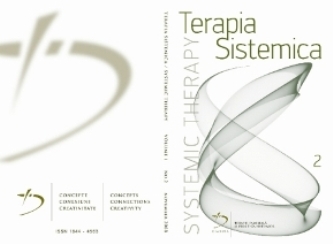Disponibilitatea „de bârfă”,gradul de satisfacție și cinismul social printre români
The “Availability to Gossip”, Life Satisfaction and Social Cynicism among Romanians
Author(s): Dana Gavreliuc, Manuella Cîmpean, Alin GavreliucSubject(s): Psychology
Published by: Asociatia DIANOIA
Summary/Abstract: The general aim of this study realized on a sample of 60 subjects is focused on predicting behaviors in quotidian interaction, like the sharing of ordinary life in a block of flats in a district of Timisoara. In this investigation we are examining the “availability to gossip”, as an implicit norm. The objectives of this study are, on the one hand, the examination of the relationship between the “availability to gossip”, as part of interpersonal interaction, and life satisfaction, and, on the other hand, the relationship between the “availability to gossip” and social cynicism, as a social axiom. Furthermore, the present study examines gender differences in the “availability to gossip”, as well as the relation between social cynicism and life satisfaction. These outcomes attests that our Romanian sample is configured with a negative association between “availability of gossip” and social cynicism, in the affective and also in the cognitive register. At the same time, there is a negative correlation between social cynicism and satisfaction with life. When we are going to discriminate our sample through gender criteria, women are more efficient in “availability of gossip” then men, especially in the affective register. All of these tendencies underline the significant role of implicit norms in modeling social strategies of self-disclosure in contemporary Romania, where the official way of acting creating often a low level of self-efficacy. For increasing amount of symbolic capital in the social networks, ordinary Romanians activate frequently this way of opening, following the “gossip” logic of interpersonal relationships. Like many other places in society, the quotidian spaces of encountering become the scene of fighting between the explicit and the implicit resources of symbolic capital, and the richness of implicit norms is often decisive in those confrontations.
Journal: Terapia Sistemica / Systemic Therapy
- Issue Year: 2008
- Issue No: 02 (en)
- Page Range: 7-14
- Page Count: 8
- Language: English

